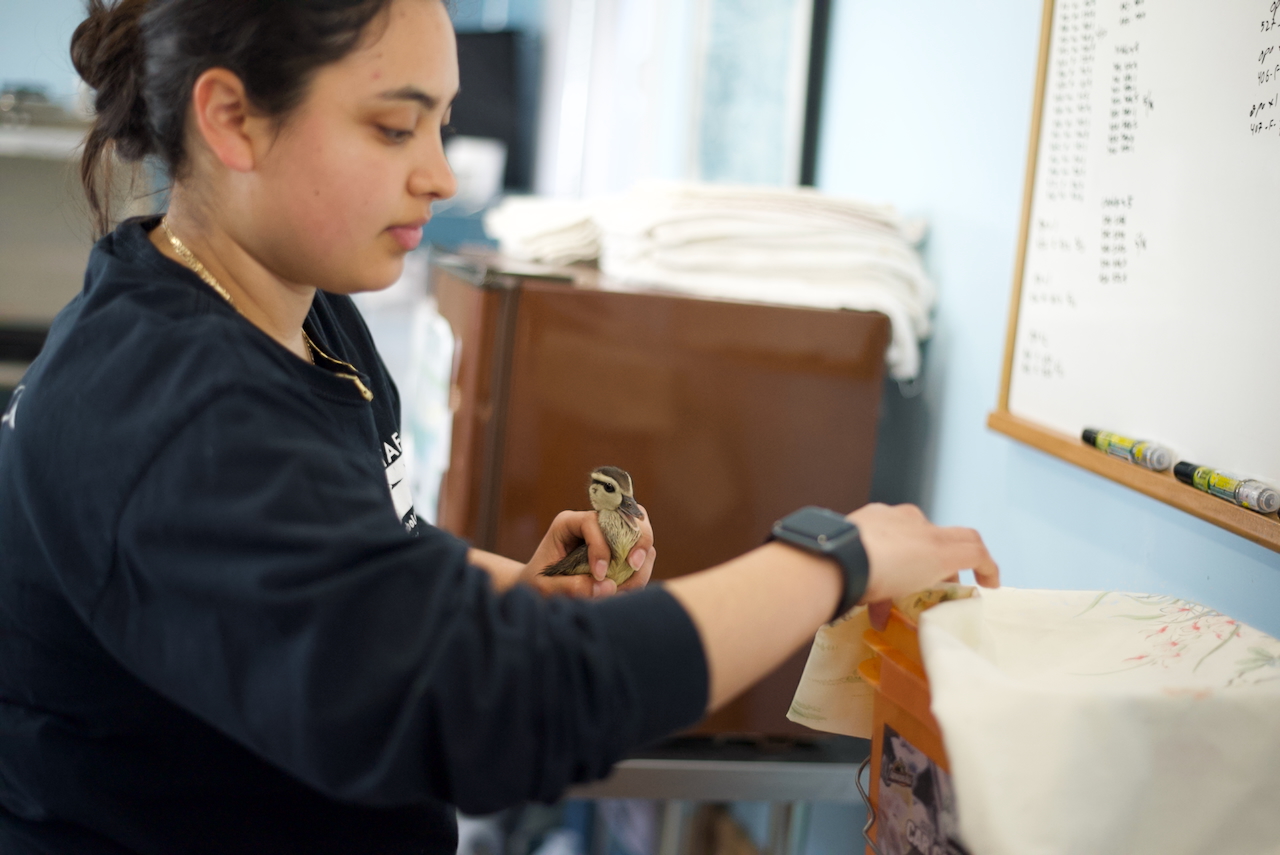
It happens a lot. A duck’s eggs hatch and her precocial chicks must be led to water… and far too often, instead they are led to slaughter – decimated on one of the worst things ever invented, the auto-route.
Often the whole family is lost, but sometimes only the mother is killed. Her babies scatter. Passing motorists (practitioners of motorism, the religion of mechanized movement) will report the mayhem to us at Humboldt Wildife Care Center… sometimes we need help with traffic from CHP to make the rescue safe, sometimes it means a voyage into a mucky marsh by the side of the highway. Such was the case on a late Saturday afternoon in mid-May.

The mother Wood Duck (Aix sponsa) was crossing US 101 south of Eureka, near King Salmon. She didn’t make it. Her babies, newly hatched, scattered in all directions. A person driving by saw it happen and called our facility. A team was prepared and dispatched to the scene.
The ducklings had scattered around a slough between the highway and the bay at low tide. It was a lot of muck. After an hour of searching – and getting pretty dirty – our intrepid team recovered a dozen healthy tiny wood ducklings.

To provide an environment and the care that protects, supports and teaches any young wild orphan until they’re able to provide for themselves is, to say the least, a specialized endeavor. First the young ducklings must be kept safe and warm, with access to food and water, and not just to drink, but swim in. Precocial birds must encounter the world they will live in immediately; but without a parent that world would kill them. So our heat lamps and small pools and collected duckweed must stand in for everything their mother would’ve given them. Obviously we are not the same, and that’s why no one would ever choose to be an orphan. But here we are.

These ducklings are doing well. They weighed about 22 grams on admission and now they are close to 200 grams. They’ll be 600 grams by the time we are considering them for release. By then they will have graduated from several types of housing meant to keep them safe and help them thrive and learn and grow. We cannot replace their mother – no one can – but with skill, empathy, and knowledge we can offer them a second chance at their wild and free destiny that the highways of the world are hell bent on taking awa

Each of our patients requires complex consideration and treatment. They need a facility purpose built to provide these things, and a skilled staff to operate. Your support is what makes all of it happen. Please donate to give our wild neighbors in need the second chance they deserve. Thank you for everything!

all photos Laura Corsiglia/bax

